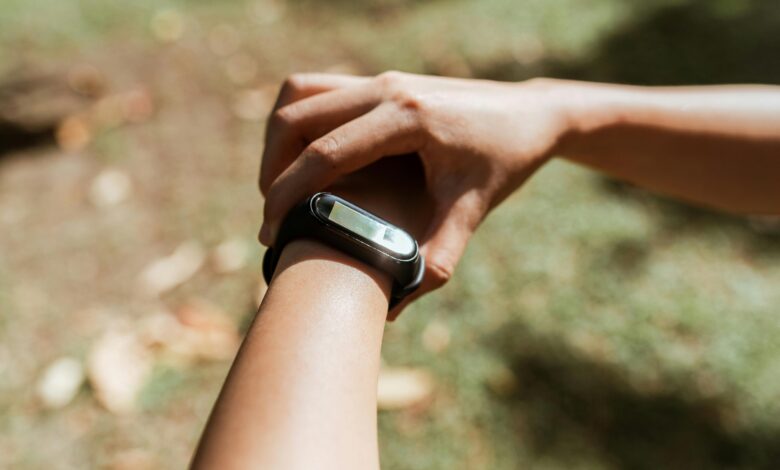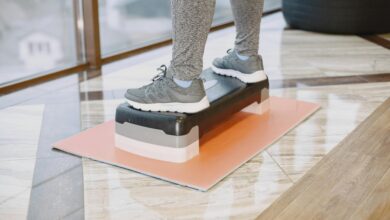The Best Fitness Trackers for Monitoring Your Progress: A Comprehensive Guide

In today’s fast-paced world, staying on top of your health and fitness goals can be challenging. Fitness trackers have revolutionized the way we monitor our physical activity, sleep patterns, heart rate, and more. These wearable devices provide real-time data and insights, helping users make informed decisions about their health. Whether you’re a beginner looking to improve your daily step count or a seasoned athlete tracking advanced metrics, there’s a fitness tracker tailored to your needs.
In this guide, we’ll explore the best fitness trackers available in 2023, their key features, and how they can help you achieve your fitness goals.
Why Use a Fitness Tracker?
Fitness trackers offer numerous benefits, including:
- Activity Tracking: Monitor steps, distance, calories burned, and active minutes.
- Heart Rate Monitoring: Keep tabs on your heart rate during workouts and rest.
- Sleep Analysis: Gain insights into sleep quality, duration, and patterns.
- Goal Setting: Set personalized fitness goals and receive reminders to stay active.
- Integration with Apps: Sync data with popular apps like MyFitnessPal, Strava, or Apple Health for a holistic view of your progress.
With so many options on the market, choosing the right fitness tracker can feel overwhelming. Below, we’ve compiled a list of the best fitness trackers across various categories to suit different lifestyles and budgets.
1. Best Overall: Fitbit Charge 5
Key Features:
- Advanced Health Metrics: Tracks heart rate, SpO2 (blood oxygen levels), stress management score, and ECG.
- Built-In GPS: Allows you to map outdoor runs and bike rides without carrying your phone.
- Sleep Score: Provides detailed insights into sleep stages (light, deep, REM) and overall sleep quality.
- Design: Sleek, lightweight design with an AMOLED color touchscreen.
- Battery Life: Up to 7 days on a single charge.
Why It’s Great:
The Fitbit Charge 5 strikes the perfect balance between functionality and affordability. Its comprehensive health metrics and user-friendly interface make it ideal for both casual users and fitness enthusiasts.
2. Best for Athletes: Garmin Forerunner 955
Key Features:
- Multisport Mode: Supports running, cycling, swimming, and other activities.
- Advanced Training Tools: Includes VO2 max, recovery time advisor, and performance monitoring.
- Solar Charging: Extends battery life up to 20 days with solar charging.
- Maps and Navigation: Preloaded maps and turn-by-turn navigation for outdoor adventures.
- Durability: Waterproof and rugged design suitable for extreme conditions.
Why It’s Great:
The Garmin Forerunner 955 is a powerhouse for serious athletes who demand precision and durability. Its advanced training tools and long battery life make it perfect for endurance sports and competitive training.
3. Best Budget Option: Xiaomi Mi Band 8
Key Features:
- Affordable Price: One of the most budget-friendly fitness trackers on the market.
- Comprehensive Tracking: Monitors steps, heart rate, sleep, and blood oxygen levels.
- AMOLED Display: Bright, colorful screen with customizable watch faces.
- Water Resistance: Swim-proof design for tracking laps and water-based activities.
- Battery Life: Up to 14 days on a single charge.
Why It’s Great:
The Xiaomi Mi Band 8 offers incredible value for its price. While it lacks some premium features, it delivers reliable tracking and a sleek design at an unbeatable cost.
4. Best for Sleep Tracking: Oura Ring Gen 3
Key Features:
- Focus on Sleep: Provides detailed analysis of sleep stages, body temperature, and readiness scores.
- Discreet Design: A stylish ring that’s comfortable to wear 24/7.
- Temperature Monitoring: Tracks changes in body temperature, which can indicate illness or hormonal shifts.
- Heart Rate Variability (HRV): Measures HRV to assess stress and recovery.
- Battery Life: Lasts up to 7 days per charge.
Why It’s Great:
The Oura Ring Gen 3 is unmatched when it comes to sleep and recovery tracking. Its minimalist design and cutting-edge technology make it a favorite among wellness enthusiasts.
5. Best Smartwatch Alternative: Apple Watch Series 8
Key Features:
- Health Monitoring: Tracks heart rate, ECG, blood oxygen levels, and menstrual cycle tracking.
- Crash Detection: Automatically alerts emergency services in case of a car accident.
- Workout Modes: Offers over 20 workout types, including yoga, HIIT, and swimming.
- Smart Features: Integrates seamlessly with iPhones, Siri, and third-party apps.
- Battery Life: Requires daily charging but supports fast charging.
Why It’s Great:
The Apple Watch Series 8 combines the functionality of a smartwatch with robust fitness tracking capabilities. It’s perfect for Apple ecosystem users who want a versatile device for both productivity and health.
6. Best for Kids: Garmin Vivofit Jr. 3
Key Features:
- Gamified Experience: Encourages kids to stay active through fun challenges and rewards.
- Parental Controls: Allows parents to monitor activity and set step goals via a companion app.
- Durable Design: Waterproof and built to withstand rough play.
- Battery Life: Up to 1 year on a replaceable battery.
- Educational Content: Includes themed adventures that teach responsibility and healthy habits.
Why It’s Great:
The Garmin Vivofit Jr. 3 makes fitness fun for children while giving parents peace of mind. Its long battery life and kid-friendly features make it a standout choice.
How to Choose the Right Fitness Tracker for You
When selecting a fitness tracker, consider the following factors:
1. Your Goals
- Are you focused on general fitness, weight loss, or athletic performance?
- Do you prioritize sleep tracking, heart rate monitoring, or GPS functionality?
2. Budget
- High-end models like the Garmin Forerunner 955 and Oura Ring Gen 3 offer advanced features but come at a premium price.
- Budget-friendly options like the Xiaomi Mi Band 8 provide excellent value for casual users.
3. Design and Comfort
- Look for a tracker that fits comfortably and matches your style preferences.
- Consider whether you prefer a wristband, ring, or smartwatch design.
4. Compatibility
- Ensure the tracker works with your smartphone’s operating system (iOS or Android).
- Check if it integrates with apps you already use for fitness or nutrition tracking.
5. Battery Life
- If you dislike frequent charging, opt for a model with extended battery life, such as the Garmin Forerunner 955 or Xiaomi Mi Band 8.



